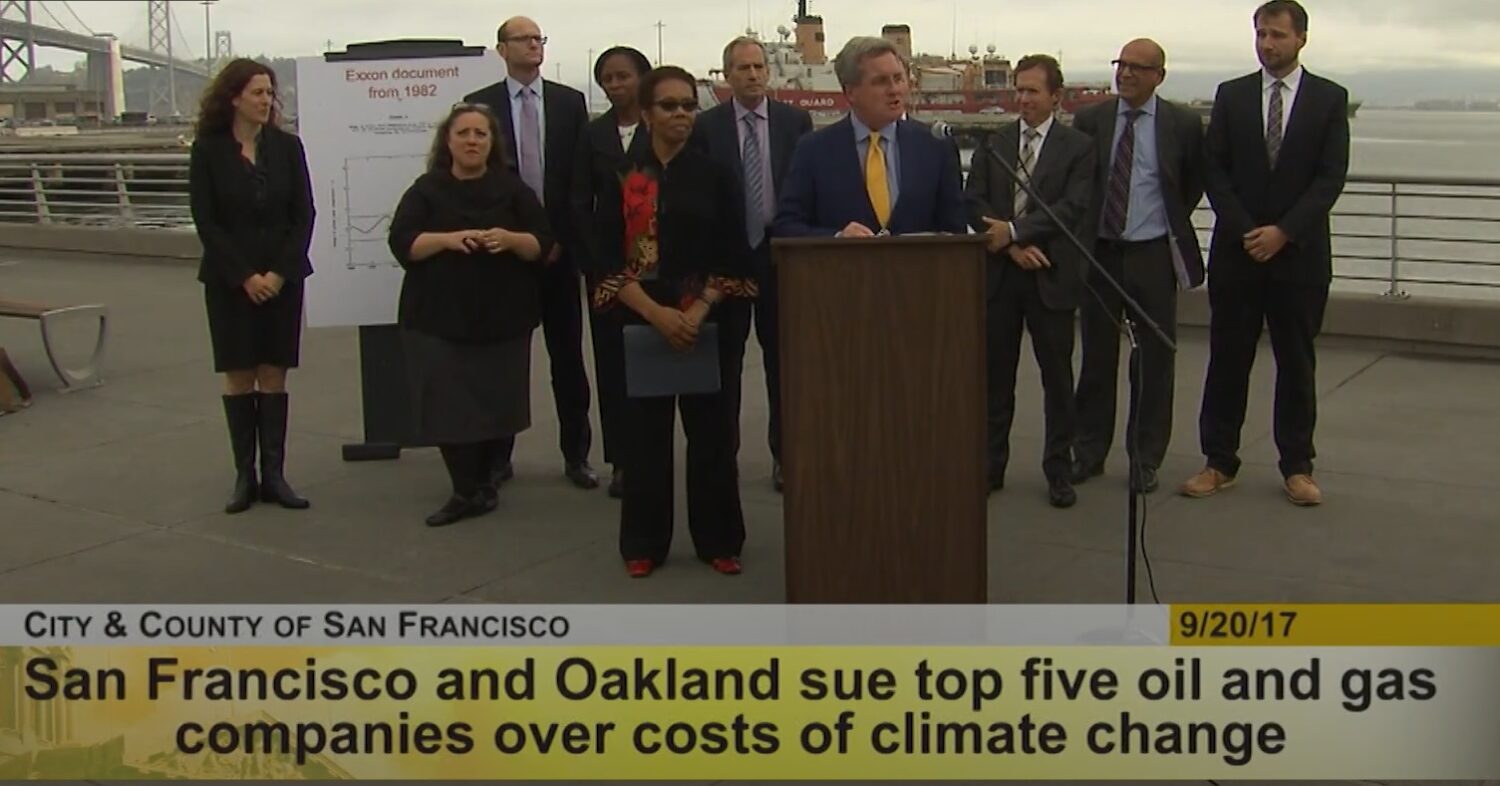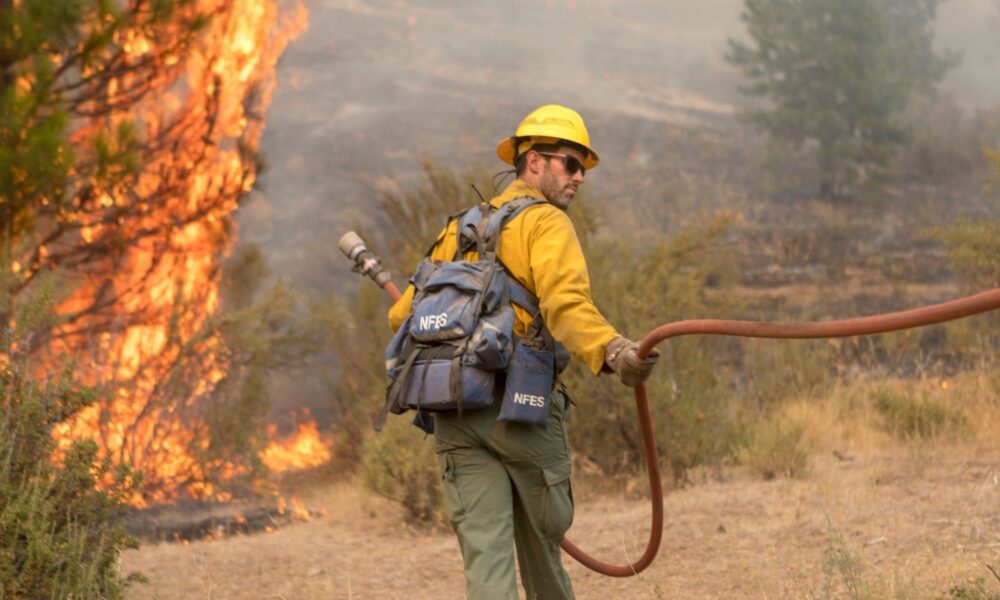As a Californian, summer still holds the promise of family vacations and visits to favorite swimming holes, but it increasingly triggers concerns about drought, extreme heat, and wildfires—or what we at UCS first named “danger season.”
Both extreme heat and wildfires are directly linked to climate change. Previous research by UCS scientists actually quantified the contribution of major carbon producers (like Chevron and ExxonMobil) to increased temperatures, and now we’ve done the same for wildfire.
For years, fossil fuel companies have socialized the costs of their pollution while privatizing the benefits. Since local and state governments are on the frontlines of paying for worsening wildfires, they should also be on the leading edge of holding fossil fuel companies accountable.
Taxpayers are, largely, picking up the bill for worsening wildfires
If you’ve been following our new research, The Fossil Fuels behind Forest Fires, you know that almost half of the rise in fire-danger conditions in western North America since 1901 can be traced to carbon pollution from 88 fossil fuel companies and cement manufacturers. This alarming finding clarifies the significant role and responsibility of fossil fuel companies to not only stop their harm moving forward, but also to address damage they have already done.
It is clear that fossil fuel companies need to take immediate measures to limit emissions, and it is also clear that they will continue to drag their feet and deceive the public for as long as possible.
Perhaps less obvious is the importance of state and local governments in holding the fossil fuel industry accountable.

Wildfires are expensive—before, during, and after they occur. In recent years, the costs of wildfires have skyrocketed. According to Statista, emergency firefighting costs have increased exponentially over the last ten years in California, from $140 million in 2012 to more than $1 billion in 2021 and 2022. And this is only a small portion of total costs. It does not include efforts to prevent and mitigate fires before they start, or the losses to buildings and infrastructure, human health, ecosystems, and economies after they are extinguished. To date, much of the costs associated with wildfires have been passed on to the public.
A recent report from Pew Charitable Trust found that unlike the federal government, state and local governments must balance their spending and revenue every budget cycle while also navigating the direct impacts of fires on communities. Importantly, the study found that states most commonly draw on general fund revenue for wildfire management—that means taxpayer dollars. And in years with tight budgets, those dollars can come at the expense of other critical services such as schools and health care.

Three ways local and state governments can hold the fossil fuel industry accountable
While state and local governments must pass more proactive wildfire policies (such as emergency funds) to help manage rising costs, holding the fossil fuel industry accountable is a critical part of the solution. Here are three ways that state and local governments are ensuring that the fossil fuel industry, rather than taxpayers, pay for their harms.
1. Litigation
Local and state governments can preserve access to justice through the courts for those experiencing climate impacts.
The Guardian writes that 2023 will be a watershed year for climate litigation. In addition to lawsuits filed by individuals and groups harmed by climate change, there are pending climate change lawsuits filed by more than 40 municipalities and states across the U.S. and its territories against the fossil fuel industry for fraud and financial damages, among other charges.
This includes lawsuits filed by the state attorneys general of Connecticut, Delaware, Massachusetts, Minnesota, Rhode Island, Vermont, and the District of Columbia, along with cities like Charleston, South Carolina. While many of these cases have been stuck in procedural limbo, a recent Supreme Court ruling means they will finally advance in states courts. And, for the first time, fossil fuel company defendants will be forced to disclose internal company documents and correspondence.
In the fight against “Big Tobacco,” these required disclosures were a turning point, revealing the tobacco industry’s playbook of denial and deception—a playbook that has largely been emulated by the fossil fuel industry.

2. Investments
State and local governments manage a lot of money, whether that be annual state, county, or local budgets, or long-term investments for retirement programs. They should include financial and economic risks posed by climate change when making investment decisions on behalf of constituents. They can choose to stop the money pipeline to fossil companies by not banking with the private sector banks that finance the fossil fuel industry.
In addition, state and local entities can pursue “environmental, social and governance” (ESG) investing. At least two states have laws in force requiring public entities to develop ESG policies or standards that apply to state investments, particularly concerning public pension fund investment decisions. Lawmakers in at least four states have introduced bills to require or encourage the consideration of ESG factors in state investment decisions, though there has been a backlash in some conservative states.
3. Oversight
State and local governments should use every tool at their disposal to require greater transparency from the fossil fuel industry and pressure fossil fuel companies and their investors to
- stop engaging in greenwashing or funding the spread of climate disinformation.
- fully disclose the climate impacts and economic risks of their businesses.
- update their business models to enable sharp emissions reductions from their products and operations at a pace and scale consistent with the goals of the Paris Agreement on climate change.
One example of greater oversight is California’s response to unprecedented spikes in gasoline prices during the summer of 2022. Fossil fuel companies did not provide sufficient information to explain the increased gasoline prices and, subsequently, failed to attend a California Energy Commission (CEC) hearing to solicit additional information.
In response, the Legislature passed new legislation in March 2023 to create the Division of Petroleum Market Oversight, housed in the CEC. This division has the authority to gather additional information from the fossil fuel industry, including the ability to subpoena records from oil companies and to refer any failures to respond to the California Attorney General for prosecution.
Emissions from the products of fossil fuel companies and cement manufacturers have fundamentally reshaped the climate of western North America and left behind a scarred, charred landscape in which people, communities, and the ecosystems that enable their existence are suffering. While we are making progress in addressing wildfire risk, the resilience-building needed is vast and, to date, the general public has largely been footing the bill. UCS’s new analysis underscores the responsibility of fossil fuel companies for a portion of the impacts and costs of coping with wildfires, and state and local governments have the power to hold them accountable. And they should.

